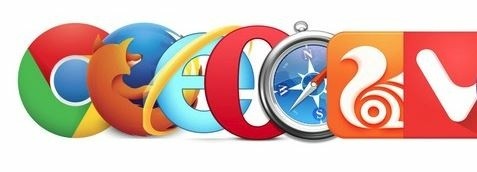
Why Did I bother with it at all?
As I wrote before it is more convenient and secure to have something small, fast and feature limited as your default browser (valid decision for all OSes out there).
Well times go by and nice small Qtweb got outdated with development on it stopped about 6 years ago and new standards (namely SSL/TLS) and new vulnerabilities came out, so I decided
to switch to Falkon – another lightweight Qt based browser with more-less active development and modern features. All was just fine until I’ve discovered one rather unpleasant feature – if Falcon browser crashes it closes the window but the process stays in memory, not just 1 process but whole bunch of processes – one per tab and tab processes are unkillable individually the only way to terminate it is to stop parent process. So, Falcon had to go – I could live with not perfect rendering, and not so short startup but not freeing RAM after crash was final straw – Falcon had to go too.
Now all I have left is mainstream big 3 – Google Chrome, Mozilla Firefox and Opera and small few – Palemoon, New Moon, Seamonkey, Vivaldi.
Selection criteria
The Testing is simple but pretty through.
- Conformity – CSS rendering Acid3 test, HTML5 features – just to see what they have. None passed Acid3, even all powerful Google Chrome can do only 98 (with 100 as perfect score on CSS rendering). On topic of HTML5 everyone are doing ok.
- Stress/benchmark/resource consumption – Basemark rather simple test, and possibly peacekeeper test still available in somewhat crippled form, but no longer supported. There were dragons and tygers – some of the contestants did not survive – specifically with the free system RAM under 2Gb, Palemoon and New Noon crashed on test 4, Firefox ESR can not do WebGL test and has under 200 final score. Not to mention startup time for it. Oh well, didn’t like Palemoon dev team attitude towards OSS projects anyway and Newmoon didn’t seem to be stable enough to begin with. Seamonkey is the monstrosity with does “a lot of things and most of them poorly” and Vivaldi is concentrating on visual presentation rather then performance and compatibility.
Final decision
Long story short, I’ve decided to set Opera as my default browser. Not very popular, but fast and compatible with most extensions I use. With the rumors of Google plans to severely cripple adblocking API, which is not surprising at all given that web ads is their main business. Sapienti sat.
In my good tradition I’ll keep Opera portable install and configure it as default browser.
0 Comments.